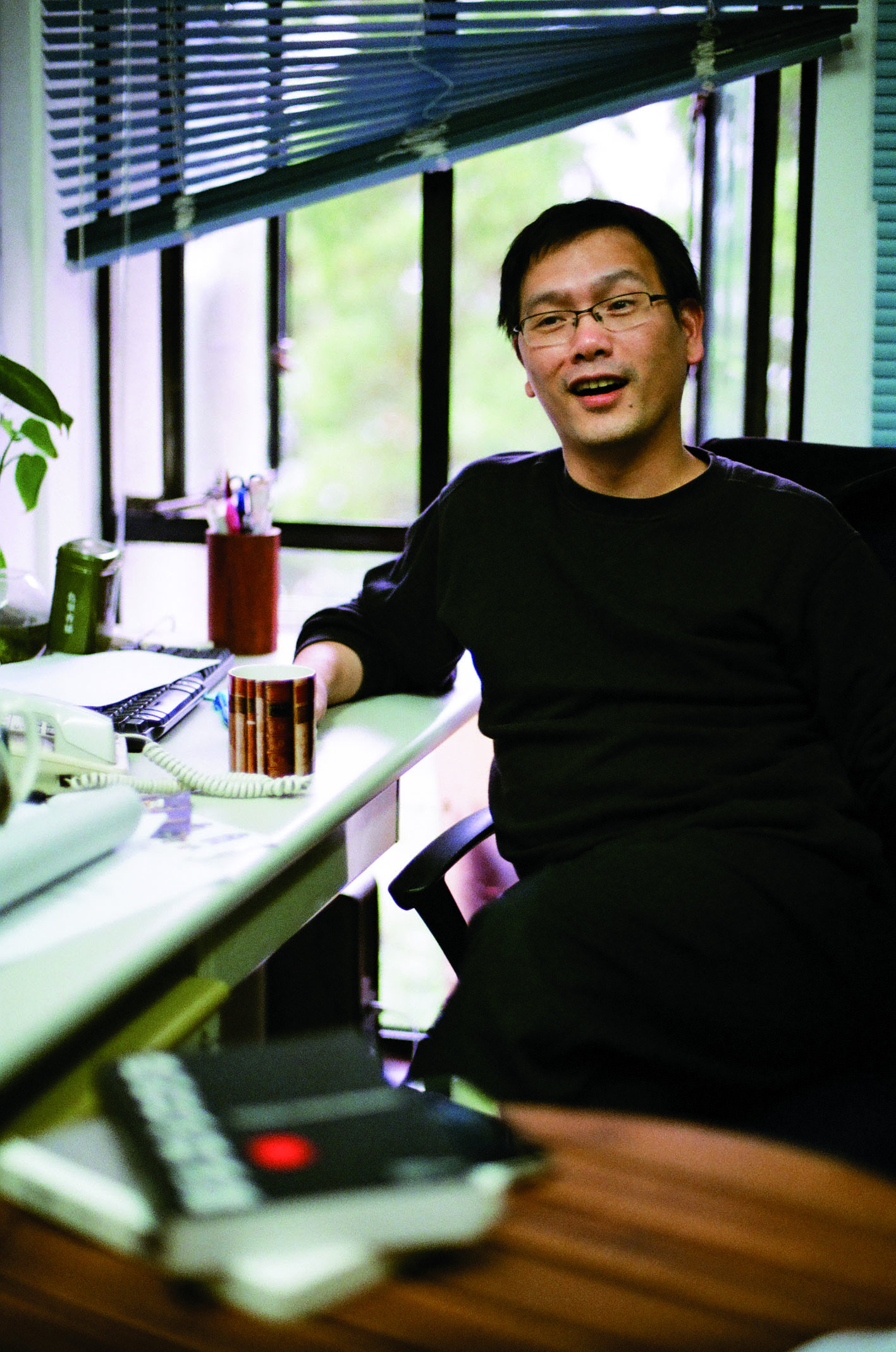Devoted professor, Chow Po-chung shares, his views on teaching
Reporter: Ben Lam
On a Friday afternoon, Chow Po-chung returns to his office after back-to-back meetings. His desk is stacked high with books and papers. Unread emails await him in his inbox. Yet the busy 38-year-old assistant professor puts his work aside for two hours to talk to Varsity.
You might wonder why Chow is so busy. He teaches just a couple of courses, one of them being political philosophy in the Department of Government and Public Administration at the Chinese University of Hong Kong (CUHK). Unlike many academics, he does not prioritise his time to win research grants, write academic papers and try to get published in the most prestigious peer-reviewed journals. Instead, he puts teaching first and foremost.
That means he spends most of his time teaching the students who are enrolled on his wildly popular courses. For Chow, teaching and learning does not just take place in the classroom. He plays music, shows movies and takes students hiking. He believes the best way to learn is to experience the world using all senses.
This is something Chow did himself from a young age. The teenage Chow enjoyed a lot of freedom as his new immigrant parents were preoccupied with work. He started to backpack around the Mainland with friends when he was just a Form Two student.
These travels influenced him deeply. He met people from different parts of the country and saw how others lived. “From this experience, I learnt what China really is. It is not an abstract concept. It is the concrete situation of how people live,” he says. “If you understand their situation, you will not make fun of them so easily.”
It is this sense of empathy that Chow wants to inculcate in his students, and which landed him in hot water at the height of the heated debate about mainlanders in Hong Kong last month.
In early February, anti-mainlander sentiment reached boiling point when some netizens published a newspaper advert comparing the behaviour of some mainlanders in Hong Kong to locusts. It followed inflammatory remarks by a mainland professor who described Hongkongers as “dogs”.
Chow posted a status update on Facebook in defence of mainlanders. He urged the public to stay rational, a view shared among many scholars. The response was immediate and some of it was vitriolic, the post was shared more than 400 times overnight.
He was accused of being a “traitor to Hong Kong”; some of his students even said they were ashamed of being his students. “He is swinging between two sides: speaking for mainlanders when in Hong Kong, speaking for Hongkongers when in the Mainland. These kinds of people who get benefits from both sides are the most hateful,” a student commented.
Chow is still surprised by the strength of the response and disappointed with other scholars who may share his views but dare not speak out. He, on the other hand, is not one to be cowed by negativity or to shy away from controversial issues.







































